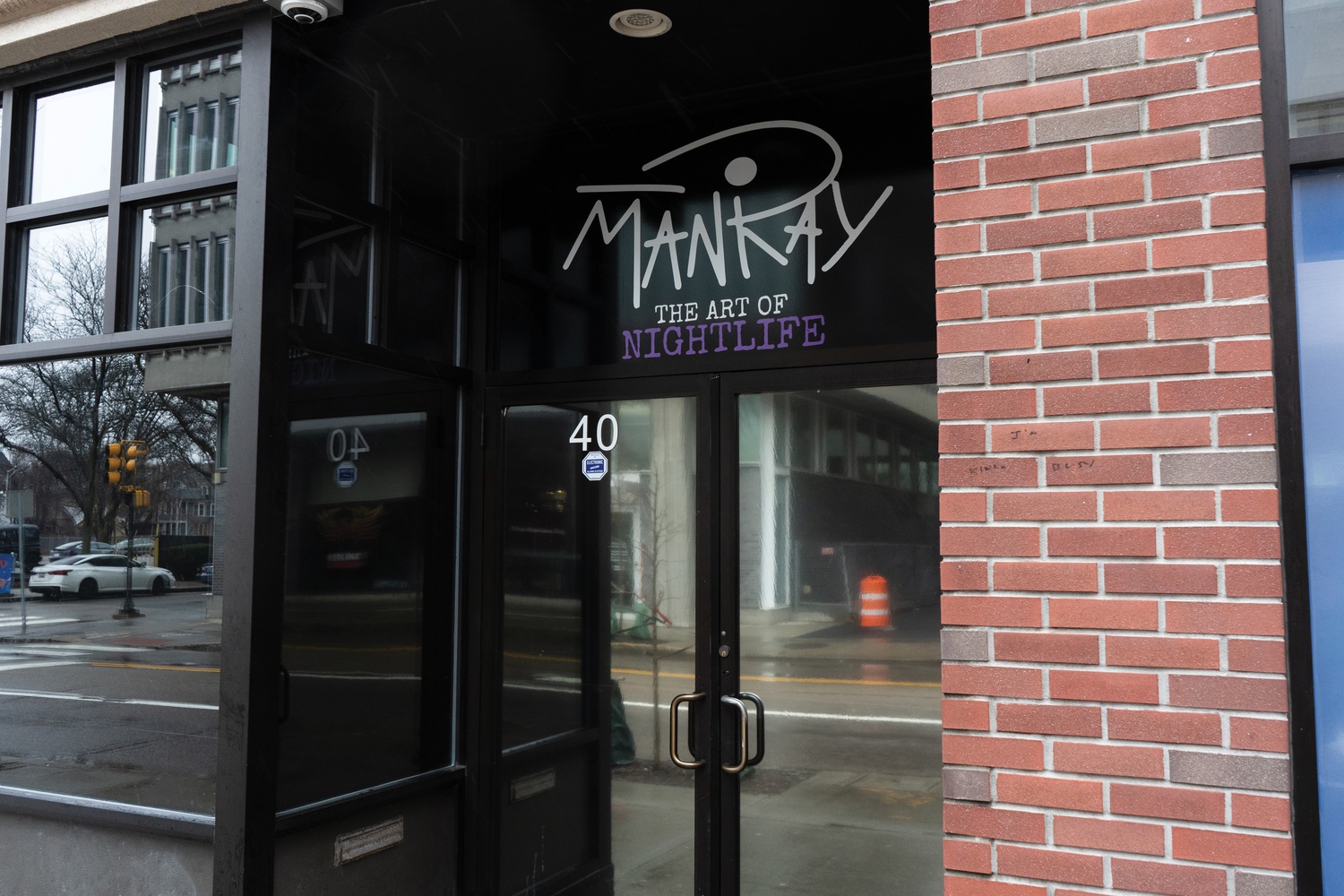
News
Harvard Grad Union Agrees To Bargain Without Ground Rules

News
Harvard Chabad Petitions to Change City Zoning Laws

News
Kestenbaum Files Opposition to Harvard’s Request for Documents

News
Harvard Agrees to a 1-Year $6 Million PILOT Agreement With the City of Cambridge

News
HUA Election Will Feature No Referenda or Survey Questions
Beloved Nightclub ManRay Parties Back Into Cambridge’s Central Square

Beloved Cambridge nightclub ManRay reopened to partygoers last Wednesday, almost 20 years after it shut down.
Located on 40 Prospect St. in Central Square, the alternative nightclub serves as a self-avowed sanctuary for counterculture groups, goths, LGBTQ+ people, and more. Its new space boasts a brand new dance floor, as well as lighting and sound systems.
In its early days, ManRay functioned as an underground club with “artsy intentions,” according to Chris Ewen, former resident DJ.
“We catered to different crowds of people on different nights, and it evolved through time and it became a home for LGBTQ+ people and fetish underground,” Ewen said.
“We became a home for lots of really cool subcultures,” he added.
Inclusivity formed a central component of ManRay’s original purpose, according to Ewen.
“It was understood that you would find like-minded people and you wouldn’t be harassed while you were there,” he added.
Despite closing its doors in 2005, ManRay’s loyal patrons didn’t disappear. According to hostess and promoter Xtine Santackas, ManRay would host Twitch and Zoom parties throughout the Covid-19 pandemic lockdowns.
“It was part of the feeling of memory that we certainly weren’t going to let go of,” Santackas said. “We did our best to nurture that even though the doors were shut.”
In 2021, ManRay took over ImprovBoston’s former space in Central Square. Reopening during a global pandemic, however, was no small feat, Ewen said.
Contractor difficulties and supply chain shortages were just some of the issues the nightclub faced, according to Santackas.
“It was a nightmare,” bartender Terri Niedzwiecki added.
When ManRay reopened its doors earlier this month, however, “the cheer could be heard from Central Square to Porter Square,” Santackas said.
“It’s a really strong community that goes there,” Niedzwiecki said, “And opening night, it was like all everyone kept saying was, ‘I'm home now.’”
In the future, ManRay plans on working with a rotation of artists, go-go dancers, and new DJ’s, hoping to make their mark on the alternative scene, according to Santackas.
ManRay intends to keep its original vibe, but bring in “different perspectives on what nightlife is today and try to keep it fresh and exciting,” Ewen said.
Ewen added he believes spaces dedicated to subculture groups and marginalized identities are still as vital as they were in 2005.
“It would be nice to think that you can be a trans person or a drag queen, or just wear all black, and go into a space and not be looked at funny,” Ewen said.
“There still needs to be viable and safe spaces,” he added.
—Staff writer Sidney K. Lee can be reached at sidney.lee@thecrimson.com.
Want to keep up with breaking news? Subscribe to our email newsletter.
From Our Advertisers

Over 300+ courses at prestigious colleges and universities in the US and UK are at your disposal.

Where you should have gotten your protein since 1998.

Serve as a proctor for Harvard Summer School (HSS) students, either in the Secondary School Program (SSP), General Program (GP), or Pre-College Program.

With an increasingly competitive Law School admissions process, it's important to understand what makes an applicant stand out.

Welcome to your one-stop gifting destination for men and women—it's like your neighborhood holiday shop, but way cooler.

HUSL seeks to create and empower a community of students who are seeking pathways into the Sports Business Industry.
